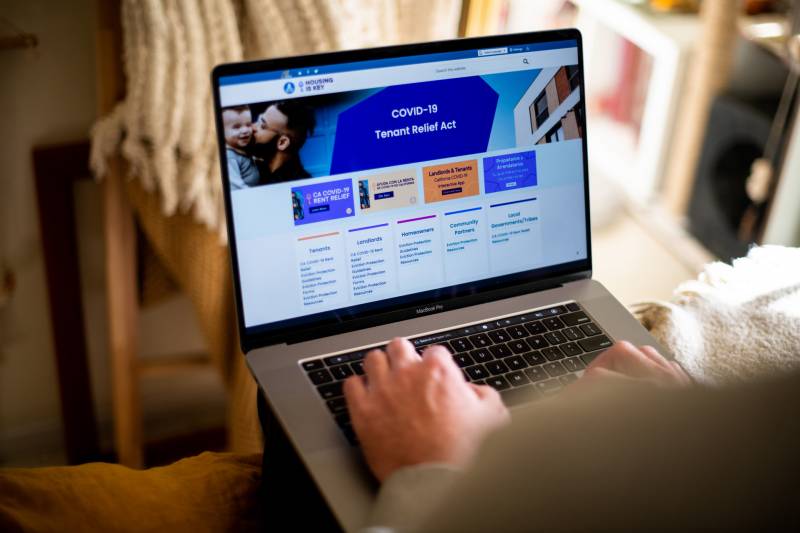And Lui can't print out applications for seniors who are less web-savvy to fill out themselves.
"One of my clients, even though she can read and speak English, opening an application requires you to register an email online. Even though she has an email, she feels pretty confused and helpless," Lui said.
While the state is now encouraging those struggling with the website to call in to a helpline, Lui said that process can be confusing, even frustrating.
"The menu is all in English," Lui said. The menu does say 'for English press one, or for Cantonese press two, for Spanish press three,' but it says those all in English. If you don’t understand English at all, you can't understand the word, you don’t understand when to press."
The state is in the process of updating the call-in line to include a welcome message in multiple languages, according to Naungayan, from the California Department of Housing and Community Development.
Lui said she also faced difficulties once she connected with a live, real human person to ask for help filling out the application. She decided to test the system, and pretend she didn't speak English. She asked for help in Cantonese, asking the operator for someone who speaks "zung-man" — essentially asking for someone who speaks Chinese, in either Cantonese or Mandarin.
"The operator hung up on me," Lui said.
When she called back and asked for "Chinese" in English, they found her an interpreter.
Should these accessibility issues be excused by the state’s having to put together a rent relief website in a tight time frame, amid a once-in-a-generation pandemic?
Advocates say no.
They point to Alameda County’s website for its own rent relief program. The site is multilingual, and, advocates say, it's easy to read, and easy to print, and they urge the state to do more to emulate it.
